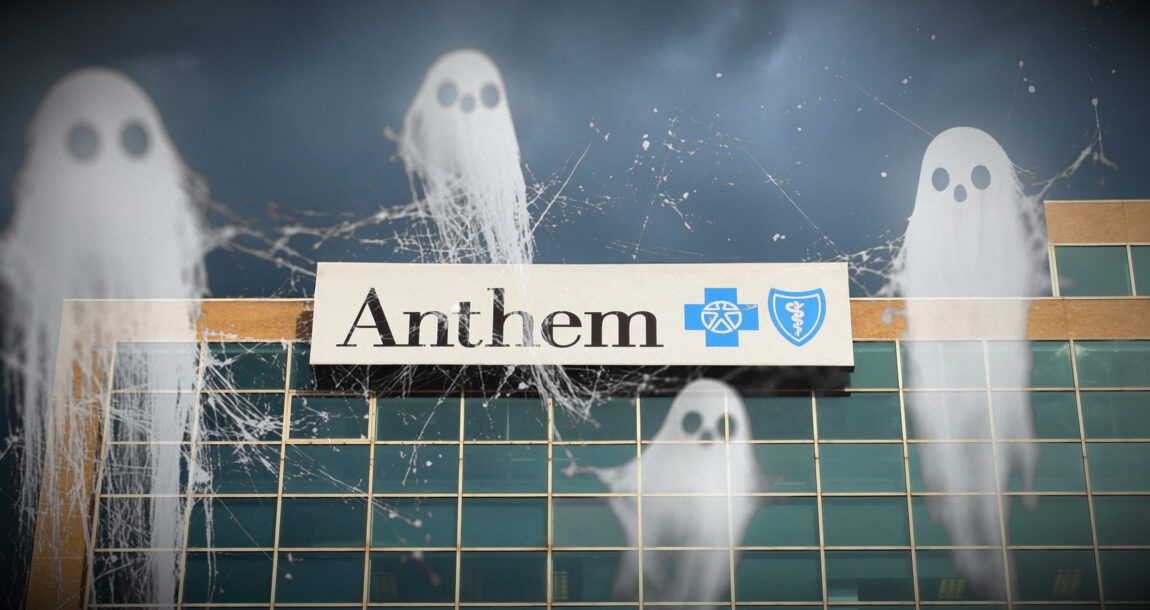Anthem BCBS may face class action suit for alleged ‘ghost network’

A first-of-its-kind lawsuit seeking class action status against Anthem Blue Cross and Blue Shield accuses the giant insurer of intentionally misleading patients by publishing a “ghost network” directory that falsely lists mental health professionals as being in-network when, in reality, they are not.
The suit, filed in the Southern District of New York, says the inaccurate and misleading directories led to financial strain, worsened mental health conditions, and undue frustration for those seeking care. The complaint claims that more than 80% of listed providers either do not accept Anthem’s insurance, are unreachable due to non-working phone numbers, or are mislabeled with incorrect specialties.
The complaint says such directories give the appearance of a robust network of in-network providers that attracts new customers who are then left unable to find adequate care when they most need it. The plaintiffs, listed as Jane Doe on behalf of Baby Doe, and Patricia Cavallaro-Kearns, report having to turn to out-of-network providers to access care, resulting in significant out-of-pocket expenses and stress.
The plaintiffs accuse Anthem’s practice of publishing a “ghost network” violates federal and state laws, including the federal Mental Health Parity and Addiction Equity Act, and the No Surprises Act.
In New York, Anthem operates under trade names including Anthem HealthChoice Assurance, Inc., Anthem Blue Cross and Blue Shield, and Anthem HP, LLC. Before changing its name to Anthem HealthChoice HMO, Inc. in 2024, it operated as Empire HealthChoice Assurance, Inc.; and before that, as Empire HealthChoice Inc; and before that, as Empire Blue Cross and Blue Shield.
'Secret shopper' study conducted
Attorneys for the plaintiffs say they conducted a “secret shopper” study and called 100 doctors listed in Anthem’s directory that supposedly accepted the BCBS insurance. Only seven out of the 100 actually accepted the insurance and would take new patients. The rest either did not accept the insurance, were not mental health providers, did not accept new patients, or were unreachable.
“We knew ghost networks were a problem, but we had no idea it was this bad,” said Steve Cohen, of Pollock Cohen, one of the lead attorneys representing the plaintiffs. “Both the New York State attorney general and the United States Senate have conducted similar secret shopper studies, and the findings were just shocking – it is nearly impossible to find doctors who accept this insurance.”
A spokeswoman for Anthem Blue Cross and Blue Shield said the company does not comment on pending legislation and the insurer has not yet filed a legal response to the suit.
The complaint contends that ghost networks are more prevalent in mental health than other medical fields, potentially due to the longstanding stigmatization of mental health treatment and fewer regulations around provider directories. For patients seeking immediate care, this maze of inaccurate information can exacerbate mental health issues, delay treatment, and discourage people from seeking help.
Accurate provider director called crucial
Legal experts note that if the allegations are proven, Anthem could face not only monetary damages but also be subject to equitable relief, requiring it to overhaul its directory practices. The plaintiffs seek injunctive relief to prevent further harm to consumers, arguing that an accurate provider directory is critical to fulfilling Anthem’s contractual and legal obligations.
The lawsuit emphasizes that mental health is a key component of overall well-being, and accessible mental health care is essential.
Lawyers for the plaintiffs say this is a first-of-its kind case that might set a precedent for how insurers maintain and present provider networks, especially in a sector where accessible mental health care has long been elusive.
“People in desperate need of medical care are intentionally being misled by their insurance company,” said Jacob Gardener, a partner at Walden Macht Haran & Williams and co-counsel for the plaintiffs. “It costs these patients not just money, but precious time to find necessary care. And that is for the lucky ones. Just imagine the anguish parents must go through when they cannot find affordable, qualified care for their children.”
© Entire contents copyright 2024 by InsuranceNewsNet.com Inc. All rights reserved. No part of this article may be reprinted without the expressed written consent from InsuranceNewsNet.com.





Ratings agency ‘concerned’ Fla. insurers may be unfairly denying hurricane claims
Turning political uncertainty into portfolio gold
Advisor News
- Investors worried about outliving assets
- Essential insights a financial advisor needs to grow their practice
- Goldman Sachs survey identifies top threats to insurer investments
- Political turmoil outstrips inflation as Americans’ top financial worry
- What is the average 55-year-old prospect worth to an advisor?
More Advisor NewsAnnuity News
- Sammons Financial Group “Goes Digital” in Annuity Transfers
- Somerset Reinsurance Announces the Appointment of Danish Iqbal as CEO
- Majesco Announces Participation in LIMRA 2025: Showcasing Cutting-Edge Innovations in Insurance Technology
- 2024 Letter to Shareholders
- Fortitude Re Announces $4 Billion Annuity Reinsurance Agreement with Taiyo Life Insurance Company
More Annuity NewsHealth/Employee Benefits News
- Investigators from University of Pennsylvania Have Reported New Data on Managed Care (Emergency Medicaid Enrollment After Traumatic Injury Predicts Long-term Health Care Utilization): Managed Care
- New Findings on Managed Care and Specialty Pharmacy Described by Investigators at University of Minnesota (Potential Benefits of Incorporating Social Determinants of Health Screening On Comprehensive Medication Management Effectiveness): Drugs and Therapies – Managed Care and Specialty Pharmacy
- Health Notes
- Medicare Advantage marketing driving up costs; fiduciary role recommended
- Latest state Dem hospital cost reform skips Econ 101 | HUDSON
More Health/Employee Benefits NewsLife Insurance News
- Global Atlantic 2025 Retirement Outlook Survey: Majority of Investors Worried about Outliving Assets
- Aegon announces changes to its Board of Directors
- Proxy Statement (Form DEF 14A)
- A-CAP Counters Desperate Attempt by Utah Insurance Department to Distance Itself from its Faulty Allegations
- AM Best Affirms Credit Ratings of Nan Shan General Insurance Co., Ltd.
More Life Insurance News